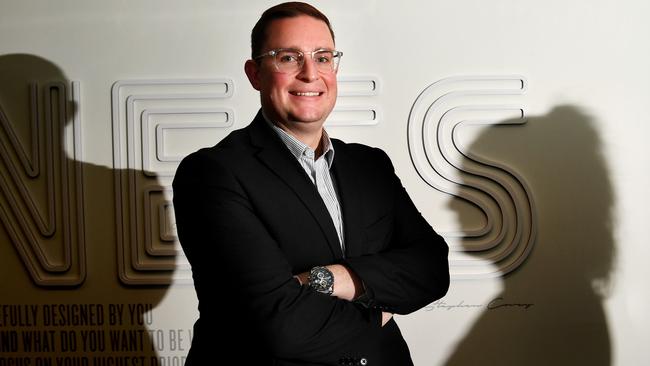The long-term changes to recruitment caused by COVID-19
Going for a new job will look a little different in future. Here’s some of the new things jobseekers will need to look out for.

Careers
Don't miss out on the headlines from Careers. Followed categories will be added to My News.
CAREERS’ panel of expert recruiters answers a reader’s question each week. Have a question? Email careers_qs@news.com.au
What covid-inspired changes to recruitment are you expecting to become permanent?
Alexandra Rosser
Head of Organisational
Psychology Consulting,
Stillwell Management
Consultants
It would be premature to confidently expect anything to be permanent given the changing landscape but it is likely that employers will more than ever think very strategically about selection criteria and place trust in the use of rigorous, evidence-based, objective assessment measures when appraising candidates, both because employers will need to recruit people with the agility, adaptability and flexibility to assist them to navigate what is ahead but also because they simply cannot risk the cost of a bad hire. We may also see an increase in use of project-limited, contract, consultant, semi-permanent or temporary staff.

Lisa Morris
Director,
Hays
The coronavirus has accelerated the adoption of several significant recruitment trends. One of the biggest is in how organisations define their employer brand and value proposition. Organisations that based this on the advantages of a pleasant working environment, their office location, or the way people worked collaboratively face-to-face, now need to reassess how they can stand out and attract talent. Meanwhile, changes to the way employers interview and assess candidates may remain in place, particularly now that organisations are set up to receive online applications. Even once social distancing measures ease, we may still see hiring managers preferring to hold first-round interviews virtually. We also expect to see organisations continue to run a large portion of their onboarding and induction process virtually. This allows employers to provide a seamless and consistent employee experience and ensures all new starters receive the same level of support. In addition, employers will prioritise soft skills when they recruit to ensure their workforce can operate effectively in the future. For some, this will mean a shift in candidate assessment to evaluate soft skills such as resilience, adaptability and problem-solving. Looking into the mid-term, employers will begin to consider the impact of skill shortages. These are present in so many industries and addressing these sooner rather than later will help forward-thinking employers fill these gaps while talent is more readily available.

Justin Hinora
Executive consultant,
Hender Consulting
We anticipate an increased frequency of working from home, conducting more interviews and meetings via Teams or Zoom, and with improved proficiency by all in using these mediums. Hiring somebody without meeting them in person is likely to become more common. Candidates categorically valuing genuine flexibility above simply remuneration. Candidates actively pursuing roles at a lower level, both in remuneration and responsibility due to increased competition. Therefore, being over-qualified is likely to continue to be quite normal and should not concern a potential employer. Job transience will also become more acceptable than has traditionally been the case.

Andrew Sullivan
Managing director,
Sullivan Consulting
Video interviews have certainly been the biggest covid-inspired change that I expect will become more common. People generally have become more comfortable communicating via video and many businesses have seen the benefits of video technology. As more employers and recruiters embrace digital options, there’s also the possibility of video applications becoming more widespread. This typically involves applicants being required to submit a short video answering specific questions. Where in-person interviews continue, distancing requirements have changed the look and feel of this process. Overall, I think there is greater flexibility in the recruitment process at the moment, some of which may continue.

MORE NEWS
The worst things jobseekers can do in a job interview
How to succeed in video job interviews
News Corp has partnered with HR technology company Shortlyster to develop the Australian National Talent Registry, an initiative to help get Australians back to work, as COVID-19 has left hundreds of thousands of people either jobless or with reduced working hours.
The registry aims to connect jobseekers, whose employment does not have to have been directly affected by the coronavirus pandemic to participate, with employers on cultural-fit and psychological level, not just qualifications and experience.
It is free for jobseekers to sign up. To sign up, visit adelaidenow.com.au/careers
Originally published as The long-term changes to recruitment caused by COVID-19
